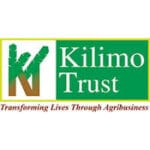AboutTanzania Coffee Board
Tanzania Coffee Board (TCB) is a government body established by Section 3 of the Coffee Industry Act No 23 of 2001. Its main functions as per Section 5 of the Coffee Industry Act 2001 No. 23 of 2001 as amended by the Crop Board Miscellaneous Act No. 20 of 2009 is to undertake regulatory functions and advise the Government on all matters related to the development of the coffee sub-sector. As a regulator, TCB’s main role is to ensure that the Coffee Industry operates in compliance with the Coffee Industry Act and its Regulations and in line with other relevant National and International regulatory policies and standards.
TCB went through three (3) major reforms from 1976 when it was first established as the Coffee Authority of Tanzania (CAT). CAT was tasked with training, supervising extension services, provision of coffee inputs, and expansion of acreage for coffee production. CAT successfully executed its functions under main two projects, the Coffee Improvement Programme (CIP) and the Coffee Development Programme (CDP), which were funded by the European Economic Community (EEC).
The Second reform occurred in 1984 when CAT was transformed into the Tanzania Coffee Marketing Board (TCMB). It was tasked with the regulatory function as performed by CAT with an added mandate of fostering coffee marketing. The transformation was necessary as the CAT did not have the financial capacity to continue funding the CIP and CDP projects which ended in 1984. The transformation also aimed to reintroduce co-operatives in Tanzania.
The third reform came in 1993 when the TCMB was transformed into Tanzania Coffee Board (TCB) to respond to the trade liberalization policies and the adoption of a free market economy in the 1990s. As a result, the TCMB was exempted from all commercially-oriented functions. In fact, the enactment of the Coffee Industry Act No 23 of 2001 limited the TCB to policy, regulatory, and coordination functions. In 2009, the amendment of the Coffee Industry Act No 23 of 2001 followed the enactment of the Crop Laws (Miscellaneous Amendments) Act No. 20 of 2009, which revised the financing structure and functions of Crop Boards.











